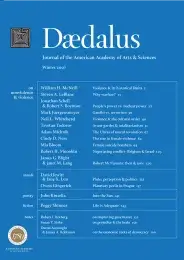Avant-gardes & totalitarianism
The history of modernity is characterized by an immense transformation: the transition from a world structured by religion to a world organized exclusively in terms of human beings and worldly values. This process of emancipation and humanization, which has been going on for several centuries, has taken two main forms. First came the project of replacing the divine absolute with a collective human absolute, what revolutionaries in France called ‘the Nation.’ Initial enthusiasm for this project began to wane, however, from the moment the Revolution engendered the Terror. The struggle for liberty had ended in the suppression of liberty: was this not proof that the project itself had been ill-conceived from the beginning?
Those who did not wish to turn back the clock but were still dissatisfied with the present then sought a second way, that of an absolute accessible to the autonomous individual. The search for this second way itself took several forms; the most influential of these identified the individual absolute with beauty and favored what Friedrich Schiller would call the aesthetic education of man. This doctrine was Romanticism, adopted first in Germany and then throughout Europe; it glorified the poet in place of the prophet and the work of art in place of prayer. “Beauty in its absolute essence is God,” declared a spokesman for the movement.
The fact that Romanticism reserved such a role for art and poetry, exemplary incarnations of the beautiful, did not mean that it neglected other human activities: for Schiller and his successors, aesthetic education and political vision went hand in hand. One of the best examples we have of the desire to improve the human condition by action in both spheres is that of the German composer Richard Wagner. Influenced by the revolutionary ideas of Mikhail Bakunin, Wagner took part in political agitation in Dresden in 1848–1849. Forced into exile by the ensuing repression, he sought refuge in Switzerland, where he produced two texts setting forth his ideas about art and its relation to society: Art and Revolution and The Art Work of the Future, both written in 1849. . . .
To read the full essay, access the PDF of the volume.
